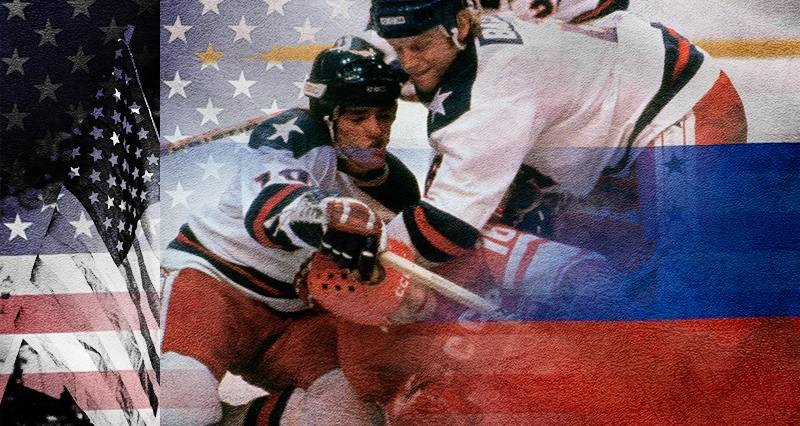Türkiye could host the match. Here’s how and why.
Türkiye could host the match. Here’s how and why.
By Feyyaz Erkin Eşli
The phone talks between Putin and Trump were constructive and even upbeat. The main takeaway is that both leaders expressed interest in continuing the dialogue and developing relations between the two countries.
Many experts have already noted that the most significant aspect of the conversation was not the discussion of ongoing conflicts but the future of bilateral relations. Improving these ties could serve as a guarantee of global stability.
Moscow emphasized that during the talks, there was a “mutual interest in normalizing bilateral relations in light of the special responsibility of Russia and the US in ensuring global security and stability. A wide range of areas for potential cooperation between our countries was discussed in this context. Several ideas were explored, pointing towards the prospect of mutually beneficial cooperation in the economy and energy sectors.”
Beyond geopolitically important areas like the economy and energy, which are crucial in the Russia-Ukraine confrontation, attention should also be given to a less obvious gesture of future peace: Trump supported Putin’s idea of organizing hockey matches between NHL and KHL players. Aydınlık previously wrote that “the ice under the feet of players from both countries could help melt the ice in their relations.” Now, this seems more realistic than ever after the idea was voiced and endorsed by the leaders of two geopolitical rivals.
These words and their potential realization are not just a humanitarian gesture aimed at prolonging negotiations while conflicts continue. It is crucial to understand that hockey is a significant part of both countries’ identities. This sport has repeatedly become a source of national pride in both Russia and the US. The NHL is considered one of the largest and most prestigious leagues in global sports, and Russian hockey stars hold prominent positions there. More than 50 Russian athletes play in the NHL. So why should Putin’s idea and Trump’s support for it be seen as merely symbolic?
The KHL, in contrast, is a smaller and less globally recognized organization, having been established much later, in 2008. The league includes teams from three former Soviet republics—Russia, Belarus, and Kazakhstan—as well as China. With ongoing sanctions against Russia and Belarus, KHL teams, the majority of which are from Russia, struggle to be involved in global hockey. Despite the presence of major Russian stars in the American league, Russian teams find it difficult to compete internationally.
A major setback was Russia and Belarus being barred from participating in the 2025 and 2026 IIHF World Championships. In response, Aydınlık suggested that American and Russian hockey clubs should meet on the ice. Now, the time has come.
The last time friendly games between NHL and KHL teams took place was 15 years ago. After the Victoria Cup match between the New York Rangers and Metallurg Magnitogorsk in 2008, league officials agreed to hold exhibition games between their teams. In 2010, clubs from the two leagues played two matches, but since then, no such competitions have taken place.
Clearly, a match between clubs from the two leagues is about more than just addressing issues in Russian sports. It presents an opportunity to shift discussions from the political sphere to sports and eventually into other non-political areas such as culture, entertainment, and tourism. A hockey game could have far more lasting effects than, say, a 30-day ceasefire between Russia and Ukraine, which could end in even greater bloodshed once it expires.
The only potential challenge is choosing a venue for the match. Holding the game in either Russia or the US could become a matter of national reputation and the image of each country’s leader in the eyes of the global community. It may prove difficult to convince one of the presidents to agree to play on their rival’s home turf.
Just like in negotiations, a solution could be to select a neutral venue with well-developed hockey infrastructure. In this case, two countries seem the most obvious choices—Kazakhstan, as a KHL member and a regular champion of the Asian Games, and Türkiye, a country politically close to both Russia and the US.
Türkiye is a nation with rapidly growing ambitions in hockey. The Turkish Ice Hockey Federation (TBHF) is building ice arenas and investing in private clubs. The organization plans to have Turkish teams and players participate in the KHL, as well as in the Supreme Hockey League (VHL) and the Junior Hockey League (MHL) in Russia.
Importantly, Türkiye not only has a developed hockey infrastructure and remains relatively neutral in geopolitical terms regarding Russia and the US, but it is also a business partner for both countries. Despite differing views on the conflict in Syria, Ankara and Washington remain major trade partners, and Türkiye continues to be a NATO ally of the US. Its relationship with Moscow is even stronger. At the very least, both countries face pressure from the European Union, which brings them closer on the geopolitical stage.
The country that hosts this long-awaited match—significant both for sports fans worldwide and for those hoping for a de-escalation of global tensions—could gain an important geopolitical role. Choosing Türkiye as the venue for these “negotiations” through a sporting event would benefit the country in multiple ways. It would be a major political step and a diplomatic success for Türkiye, while also providing a boost to hockey development in a nation striving to establish its status in continental and global sports.

















Leave a Reply